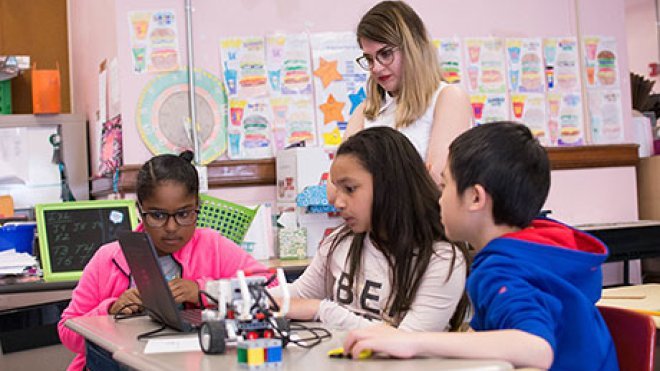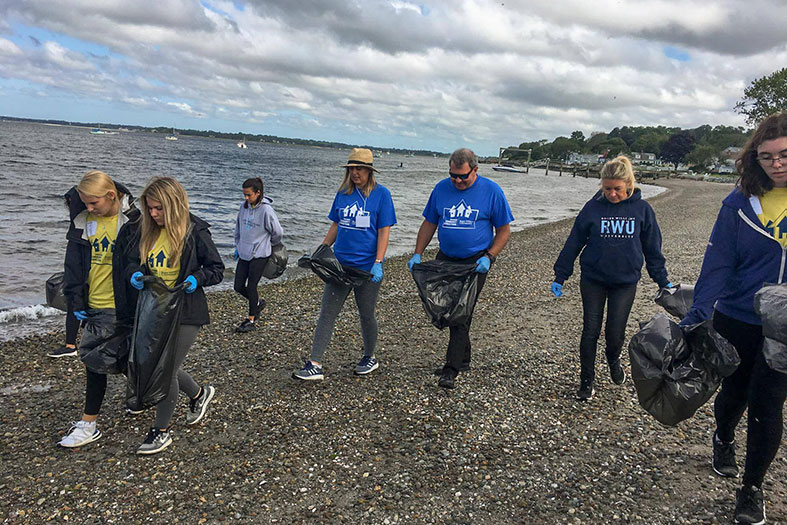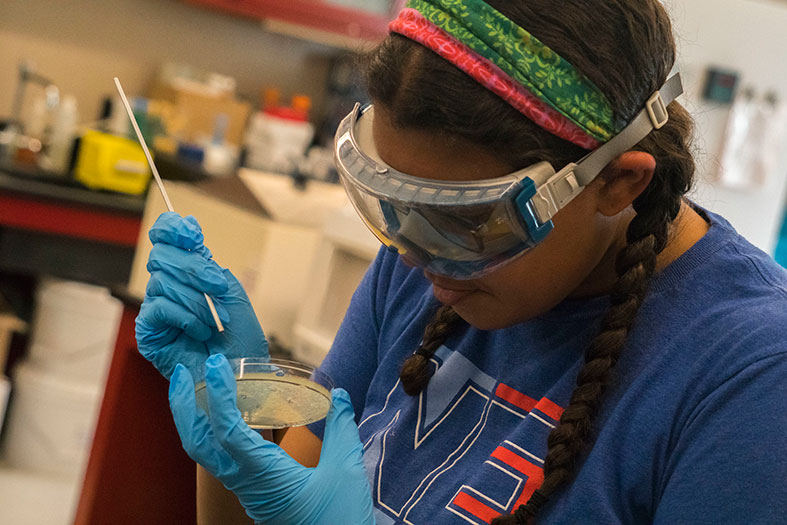RWU Receives Classification as a Leader in Community Engagement
For its deep commitment to community-engaged work and civic scholarship, Roger Williams University earns 2020 Carnegie Community Engagement Classification

BRISTOL, R.I. – Roger Williams University today received the highly selective Carnegie Community Engagement Classification, recognizing the university as a leader in community-engaged work and civic scholarship.
Roger Williams is one of only two institutions in Rhode Island with this Carnegie Community Engagement Classification, an optional designation that demonstrates a university’s dedication to community-engaged work. Across the nation, only 359 colleges and universities hold this classification from the Carnegie Foundation.
“The institutions that we are recognizing today are doing extraordinary work in addressing their societal responsibilities in and through community engagement and service. In doing so, they bring scholarship, knowledge, and expertise to bear in the address of real challenges in our communal lives,” said Paul LeMahieu, senior vice president at the Carnegie Foundation for the Advancement of Teaching. “They inspire us, even as they instruct us how to be our best selves in service to our communities. These are the very purposes for which the Carnegie Endorsement was established.”
“Receiving the Carnegie Community Engagement Classification is a testament to the community-engaged work and civic scholarship that we do at Roger Williams University, the School of Law and University College,” RWU President Ioannis Miaoulis said. “It is a rigorous, accreditation-like process that we chose to pursue, not a ranking or popularity vote. So we are honored to achieve this prestigious distinction that validates the quality of our faculty’s instruction and the unique way we partner with communities to solve real problems together.”

Community-engaged learning is at the heart of an RWU education. Whether it’s real-world projects built into courses or working through the Community Partnerships Center (CPC) to partner with communities, businesses and nonprofits, our faculty and students apply their knowledge and skills to real issues in local and global communities. They work oftentimes in interdisciplinary, long-term partnerships that span semesters and sometimes years, including the ongoing work in Central America with the Foundation for International Medical Relief of Children (FIMRC) and the Hassenfeld Projects initiative which funds student and faculty fellows to conduct a deep dive into a community issue. In just the 2017-18 academic year, 2,644 students – almost half our population – participated in community-engaged courses, and many more give back each year through a full day of service to our local communities in Feinstein Community Connections day and as part of student organization such as the Food Recovery Network, Habitat for Humanity and Engineers Without Borders.
RWU’s University College spearheads a variety of community-engaged programs, from the state’s first Gateway to College program to Providence Talks, Ready to Learn, and an English-as-a-Second Language Teacher Certification Program in partnership with the Rhode Island Department of Education. At RWU Law, a commitment to community thrives in its legal clinics and Alternative Spring Break program, where students provide free legal assistance to communities in need, and in the innovative Marine Affairs Institute and pro bono requirement that commits each student to complete at least 50 hours of legal work with a pro bono focus.
“The Carnegie classification is the gold standard for designating institutions that have a commitment to community engagement,” RWU Vice Provost Robert Shea said. “Every school says they do community engagement, but throughout this application process I was struck by how many faculty do this work and the number of programs offered across the university that partner with communities to fulfill a need. We embrace a values-laden mission, driven by our core institutional goal of strengthening society through engaged teaching and learning.”

“We have engagement at every level, far surpassing the traditional idea of community service that many hold,” said KC Ferrara, director of the Feinstein Center for Service Learning and Community Engagement. “For us, community engagement is an intellectual and practical exchange with communities, where our students are able to apply their classroom learning in a community context, while we also collaborate in ways that strengthen our community partners. The work we do helps organizations build capacity, run more effectively, and develop needed resources such as business plans, architectural renderings, policy documents, board of trustee manuals and so much more.”
This month, Dr. Allen Hance joined the university in a newly created position of associate provost for community engaged learning. A distinguished administrator, educator, researcher and policy analyst, Associate Provost Hance will elevate RWU’s capacity to partner on high quality, engaged scholarship and research.
“RWU’s extraordinary commitment to community engagement and experiential learning is what drew me to this position,” Hance said. “Seeing Roger Williams students as Civic Scholars is symbolically powerful and a promise the institution has made about the character of its education. The self-study process undertaken for the Carnegie classification helps us determine what we want our students to be, what we want them to know and what kind of values we want them to embody. From there, we can think backwards across the four-year experience and design new ways of fulfilling that promise of Civic Scholars.”